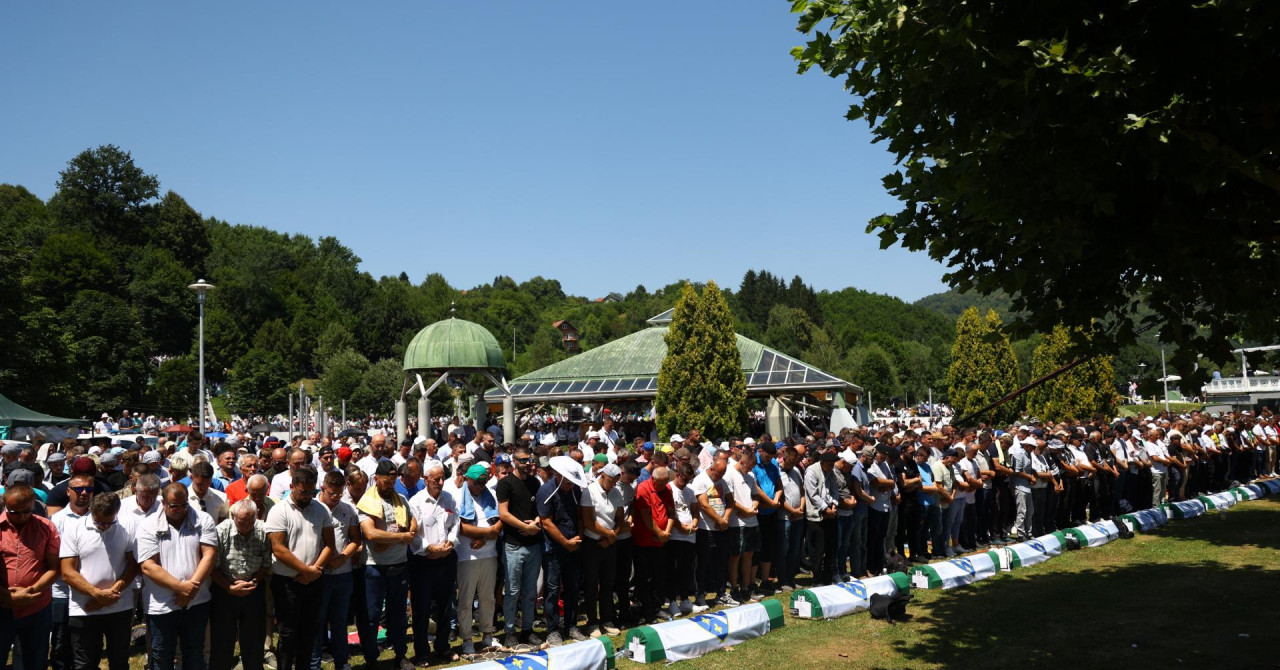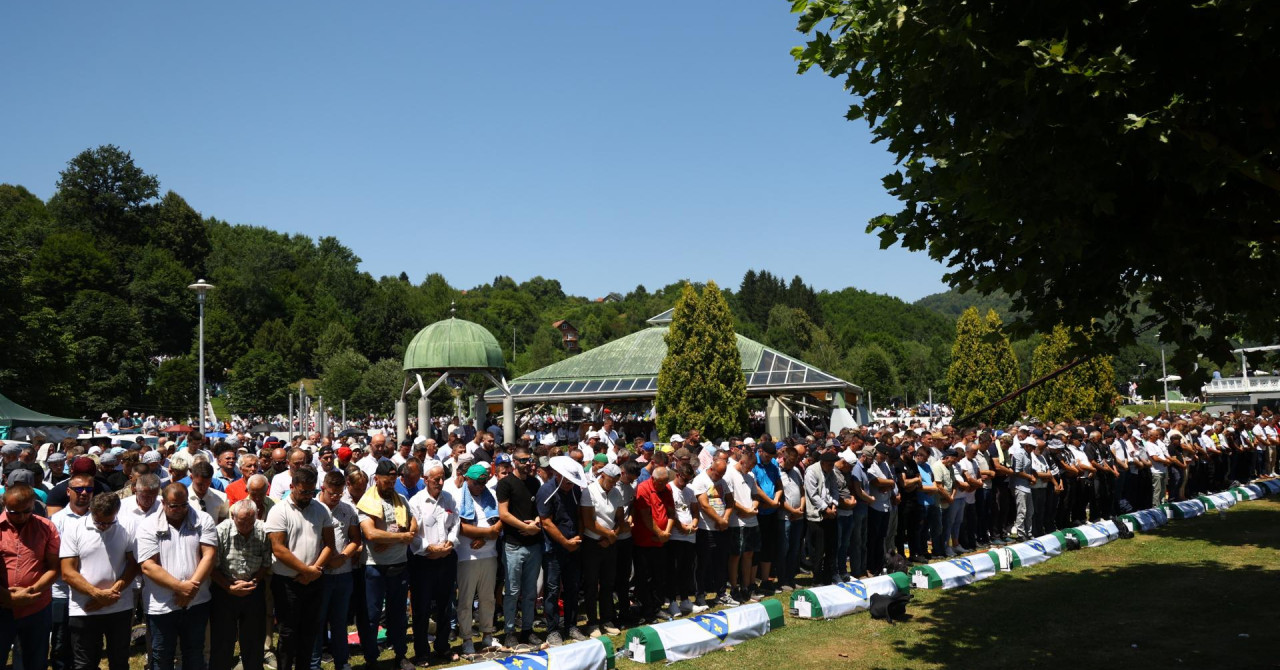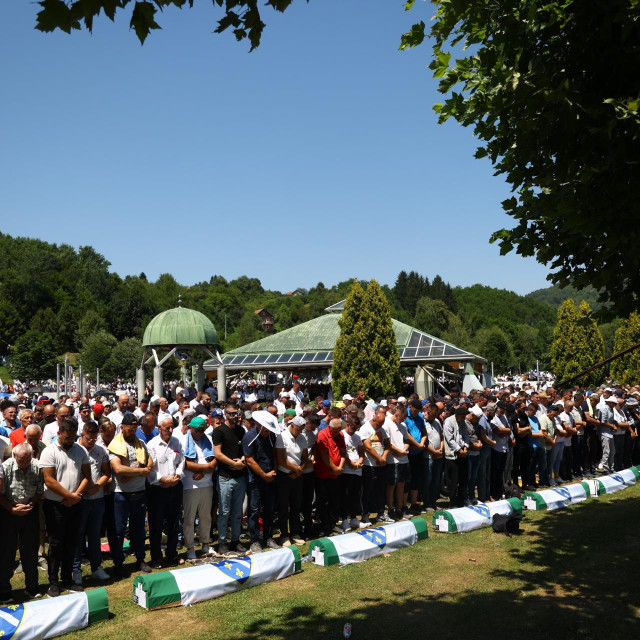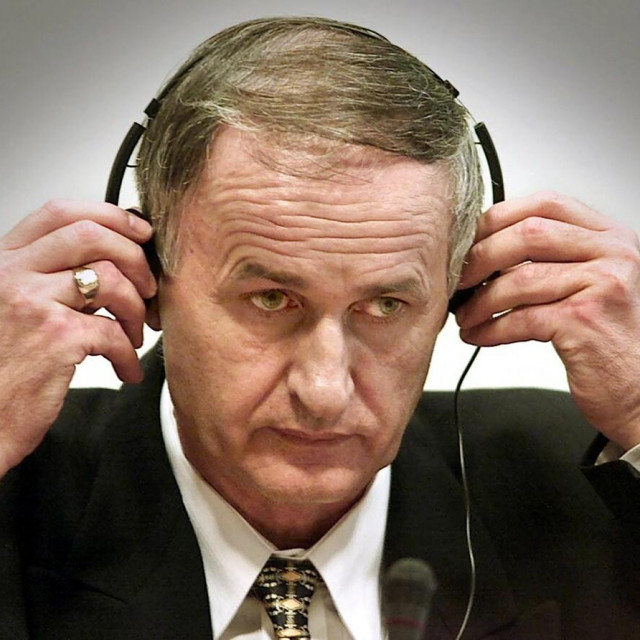The Srebrenica Genocide and Its Shameful Denial: How Serbia and RS Are Stirring the Pot Ahead of the 30th Anniversary
The 30th anniversary of the Srebrenica genocide is fast approaching, marking one of the darkest chapters in recent European history. International courts have unequivocally confirmed that what happened was genocide, yet some political elites in Serbia and Republika Srpska still refuse to accept this truth. What’s going on, and why is this issue still so heated?
The EU Stands Firm on the Truth The European Union has been clear and loud in calling for recognition of the genocide, respect for the victims, and promotion of reconciliation. The EU condemns any denial, relativization, or misinterpretation of the Srebrenica genocide. “There is no place in Europe for genocide denial, revisionism, or glorification of war criminals,” said a spokesperson for the European Commission.
Scandalous Initiatives from Serbia and RS While Europe and the world prepare to honor the victims, scandalous initiatives are coming from Serbia and Republika Srpska. Instead of marking July 11 as a Day of Remembrance for the genocide, authorities in RS and Serbia plan to celebrate it as the Day of Liberation of Srebrenica. To make matters worse, convicted war criminal Vojislav Šešelj has been invited as a guest on pro-government media to spread lies and deny the genocide.
Media as a Playground for Deniers Pro-government media in Serbia provide a platform for war criminals and genocide deniers to publicly spread their messages. Instead of distancing themselves from such views, authorities often use them as political allies. This is not only an insult to the victims and their families but also a danger to the region’s future.
International Courts Have Spoken The genocide in Srebrenica has been confirmed by rulings of the International Court of Justice and the International Criminal Tribunal for the former Yugoslavia. However, despite these clear legal facts, genocide denial remains present at the highest levels of power in Serbia.
Why Does This Matter? Denial of genocide is not just historical revisionism. It is a direct attack on reconciliation, stability, and the future of the Western Balkans. While the EU and the international community call for facing the past, some politicians in Serbia and RS choose the path of hatred and division.
What’s Next? So far, the European Union has mostly responded with words, without concrete measures against those who deny the genocide. Will this change? Will Serbia and RS finally accept the truth and move towards reconciliation? Or will we continue to watch history being rewritten and exploited for political gain?
Conclusion The 30th anniversary of the Srebrenica genocide is a moment for remembrance, respect, and learning from the past. Instead, we face scandalous attempts at denial and relativization. If we think this is just history, we are sorely mistaken. This fight for truth and justice remains crucial for peace and stability in the region today.
So, what do you think? Is it possible that the truth about Srebrenica will ever be fully accepted where it matters most? Or will we keep watching the same denial shows and political games? Drop a comment, let’s hear some reason or at least a good joke on this topic — because sometimes laughter is all we’ve got left.












